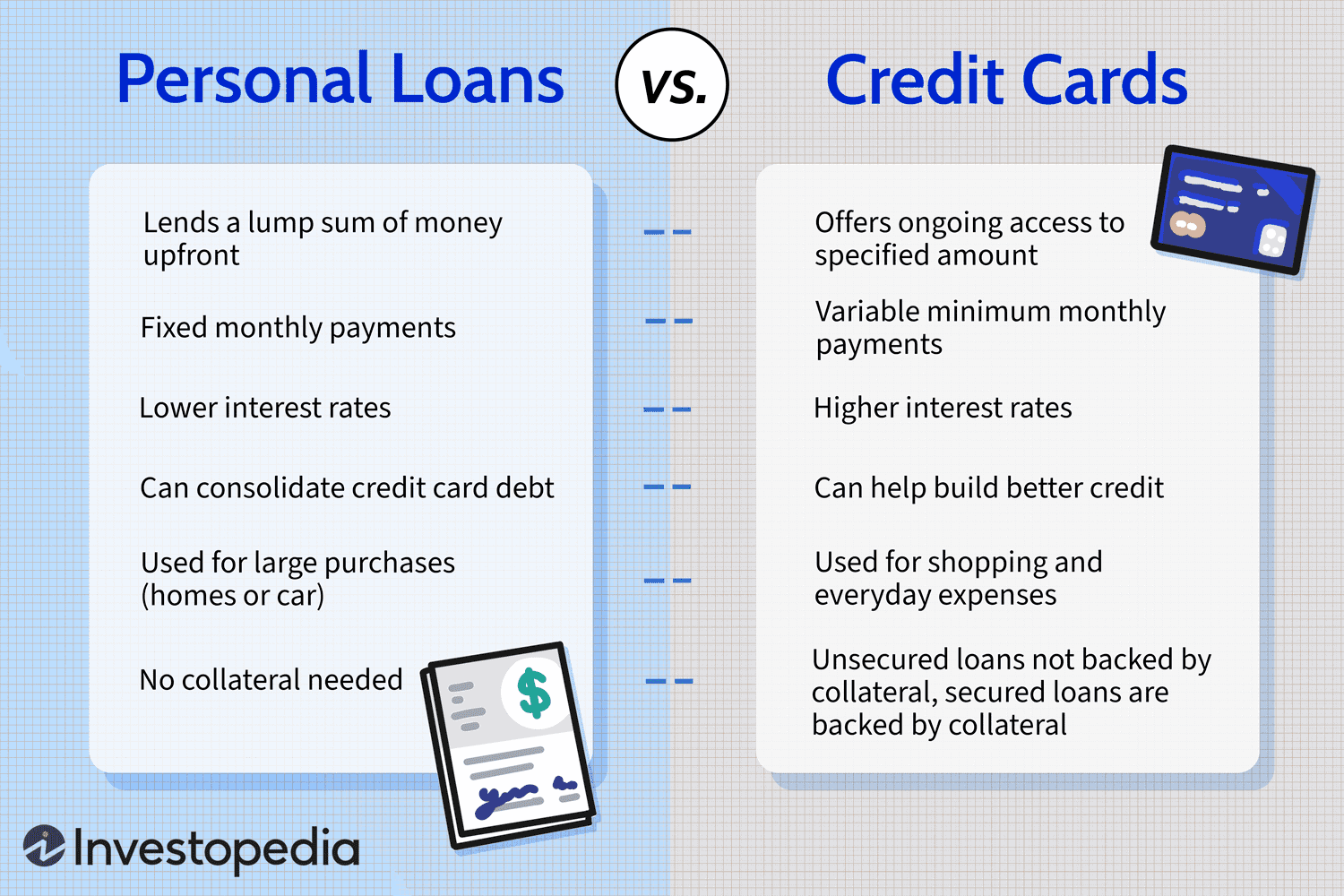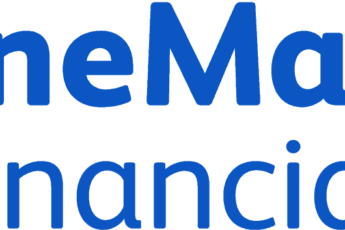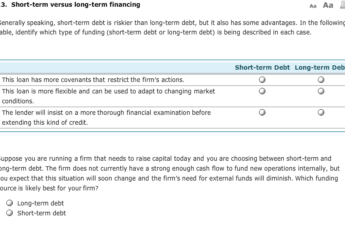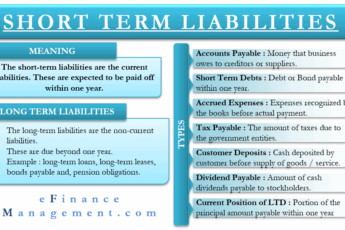A short term loan from a bank is a simple way to get the money you need during a temporary period. All you need to provide is basic personal information and proof of your current financial status. Your lender will ask for your address and employment details, and they will check your credit history to ensure that you are not a risk. If extra information is needed, they will contact you, but in most cases, a quick online application is enough.
Limits of short-term loan from bank
The limits of a short-term loan from a bank will vary from lender to lender. Some banks allow you to borrow up to a year, while others may allow you to borrow as little as a week. Whatever the case, short-term loans are relatively easy to qualify for, but they can also carry a high interest rate. In addition, a short-term loan is typically unsecured and will have a shorter repayment period than a traditional bank loan.
However, short-term loans are not suitable for large-scale projects. The interest charges can add up to huge amounts, which can be prohibitive for entities. While these loans have many advantages, they are not the best choice for large-scale fund needs. Since they must be repaid within a year, they are not suitable for long-term projects. Nonetheless, they can help small businesses and individuals with poor credit qualify for a loan, especially if they don’t have a large amount of cash on hand.
A short-term loan is a great option for those with a temporary capital requirement. They can range from a few hundred dollars to a hundred thousand dollars. In addition, the credit limit is significantly lower than that of a line of credit, which makes them a great option for many small businesses.
Interest rates
The interest rate on a short term loan from a bank is the rate that the lender will charge you on the loan. The rate is calculated as a percentage of the loan’s principal. It’s important to know what these rates mean so you can get the most affordable financing possible.

Short term loans are usually repayable in one to two years. Because they’re so short, they tend to carry lower interest rates than other types of loans. They’re also less risky than other types of loans because they have a shorter term. In addition, the shorter maturity period means the loan’s terms won’t fluctuate much during the life of the loan. The processing time is also shorter, which means that you can get your funds faster.
The interest rate for a short term loan is determined by two factors: the risk of default and the opportunity cost. Longer-dated debts tend to carry higher interest rates than short-term loans, as there’s more time to default. Inflation follows, which leads to higher interest rates.
Fees
If you are looking for an immediate cash injection, a short term loan may be an option for you. These loans are typically easy to qualify for and fast to get. However, their high interest rates and fees can add stress to your budget. You may also face prepayment penalties or late fees if you miss a payment. This can cause you to default on your loan and end up with additional costs.
Short term loans are actually cash advances where the lender provides the borrower with a predetermined amount of money. They are made through a credit facility, and the borrower makes monthly payments by allowing the lender to access the money. In turn, the lender takes a percentage of each purchase made by the borrower until the loan is fully repaid. Essentially, a short term loan is like a business credit card. It has a set credit limit that you tap into when you need it, but you are required to make regular monthly payments.
Overdraft fees are another major source of revenue for banks. According to the Consumer Financial Protection Bureau, this fee makes up about two-thirds of the fee income that banks report. In addition, consumers paid about $8 billion in overdraft fees in 2021. These fees are often accompanied by high interest rates.
When choosing a lender, consider your monthly budget and income. This will help you determine whether or not a short-term loan is a good option. Remember that your credit score will play a role in the loan’s interest rate and fees. Also, consider whether you can pay off the loan early. Some lenders charge a prepayment penalty for early payoff. For this reason, it is better to choose a lender with a no-prepayment penalty.

In some cases, a short-term loan is the best solution for short-term money emergencies. The loan amount can range anywhere from $100 to $1,000. While short-term loans are convenient, they come with risks. You should only use this option as a last resort.
Collateral requirements
The most common collateral requirement for short term business loans is accounts receivables. Accounts receivables can be a great asset for borrowers. Another form of collateral is factoring, which finances receivables. The amount a borrower is required to put up as collateral is usually much smaller than the amount of money they need.
Investments can also be used as collateral, such as stocks or bonds. This type of collateral is less risky and offers lower interest rates compared to other types of loans. Large banks usually only use investments as collateral. However, if you are looking for a short-term loan from a bank and don’t have a lot of assets to pledge as collateral, an investment loan may be an option.
Mortgage loans can be used as collateral if they meet certain criteria. However, if they are not properly recorded or have errors, they may not be considered qualifying collateral. These errors may affect the credit quality of the collateral and the Bank’s ability to perfect its security interest. In addition, mortgage collateral may have other requirements.
Banks are based on the value of the collateral. The lender considers how much the asset is worth over time. As such, the advance rate depends on the quality and location of the collateral. Historically, banks were eager to advance up to 100 percent of a borrower’s home value, but the financial crash of 2008-2009 showed that real estate can depreciate quickly, resulting in large losses for banks. Today, banks are more cautious and will advance between 70 and 75 percent of the value of the asset.
The best form of collateral for a short-term loan from a bank is a future paycheck. However, this is only an option if the borrower has a genuine emergency. Before accepting a short-term loan from a lending institution, be sure to review the fine print and compare rates.

Short-term loans are a great option for emergencies and need immediate funds. Banks usually have fewer requirements for collateral and approval is often faster than with a traditional loan. However, they can also have high interest rates and fees. They are not ideal for long-term loans and should only be used as a last resort.











